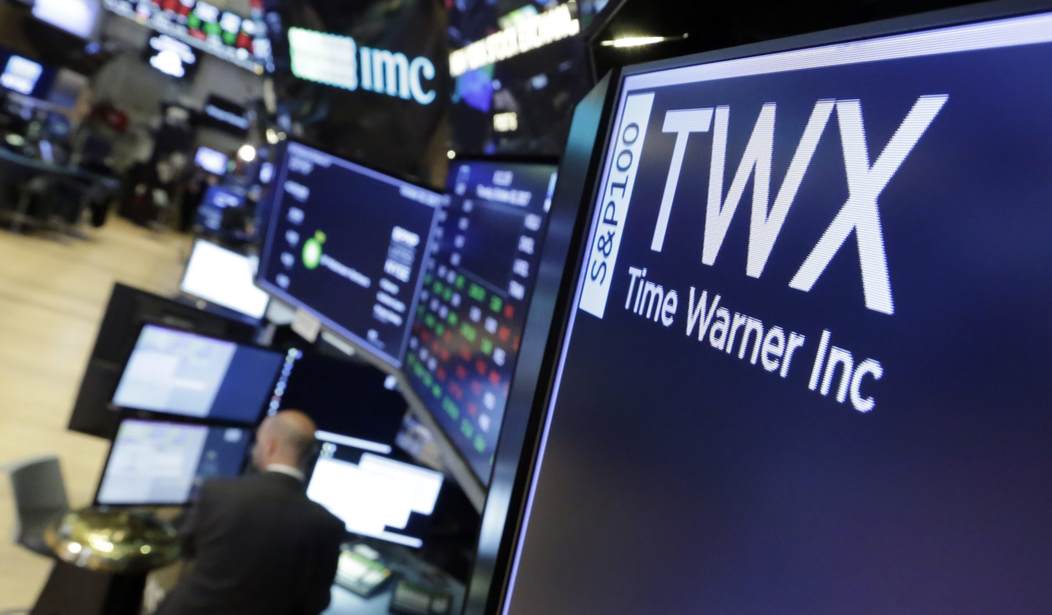WASHINGTON – Democrats on the House Judiciary Committee have called for a hearing to discuss major antitrust reviews for deals like the AT&T-Time Warner merger, while accusing President Trump of improperly blocking the deal for political gain.
The Department of Justice filed a lawsuit last week in an attempt to block the $85 billion merger, which would combine the world’s largest telecommunications company, AT&T, with the third largest entertainment company.
In October 2016, then-candidate Trump, who has repeatedly bashed Time Warner-owned CNN as “fake news” and “garbage journalism,” called the merger an example of the power structure he planned to fight if voted into the White House.
“AT&T is buying Time Warner and thus CNN, a deal we will not approve in my administration because it’s too much concentration of power in the hands of too few,” Trump said.
In a recent letter calling for a hearing on the matter, Reps. John Conyers (D-Mich.) and David N. Cicilline (D-R.I.) pointed out that Trump has been silent on the conservative Sinclair Broadcast Group’s pending purchase of Tribune Media. Sinclair’s chief political analyst Boris Epshteyn served as communications director for Trump’s inauguration committee.
“Such disparate treatment of pending media industry transactions seems, at best, hypocritical, and, in fact, may be far more deeply troubling than that,” the letter to Chairman Bob Goodlatte (R-Va.) reads.
The letter also notes that Trump met with Softbank CEO Masayoshi Son to talk about the company’s pursuit of T-Mobile, and the president met with executives from Bayer and Monsanto during a proposed $66 billion merger. The Democrats also mention that Commerce Secretary Wilbur Ross spoke in favor of Amazon’s deal to buy Whole Foods, while the merger was under review by the Federal Trade Commission.
The last hearing held to discuss telecommunications and media competition was held in 2014, the letter states.
Lauren Wright, a politics instructor at Princeton University who served on the White House Transition Project, said in a recent interview that it’s common for presidents to meet with leadership from large companies. Antitrust reviews have also become increasingly common across administrations, she said, noting that the Obama administration saw the largest amount of antitrust reviews since the Reagan administration, as the number of reviews has steadily climbed. Less than 3 percent of major financial transactions are challenged by the Department of Justice and the Federal Trade Commission.
Wright said that what has been uncommon with this administration is Trump’s willingness to publicly comment on these politically stimulating issues. While every administration looks to expand the executive branch’s influence, most presidents allow their agencies to carry out the agenda without interference from the White House.
“He gets into these political fights and sometimes causes them and brings them into public view, when I don’t think that that’s to his advantage, and I don’t think it’s to the Justice Department’s advantage because they want to be seen as an apolitical agency, and this is a big distraction for them,” Wright said. “Yes, (Democrats) are going to take advantage of these situations where the president kind of steps on his own foot. Is that playing politics? Both parties find these opportunities when they can, but they wouldn’t be there if Trump didn’t create them in the first place.”
In their letter, Conyers and Cicilline cite comments from the Justice Department’s career antitrust enforcement staff, which stated that it’s “troubling” that presidents of companies being reviewed by the Antitrust Division would meet with the president.
“We’re a law enforcement agency and we pride ourselves on enforcing the law and looking at a case objectively and deciding whether it would or would not violate the antitrust laws,” a DOJ antitrust staffer told ProPublica in January.
Wright noted that Obama-era Attorney General Loretta Lynch was vocal about antitrust efforts, but Obama remained in the background. She said this is another example of Trump’s propensity for “self-sabotage.”
“It’s really difficult for me to see how these types of public comments that are so provocative help the president in any way,” she said. “He is the least risk-averse president in modern history.”









Join the conversation as a VIP Member